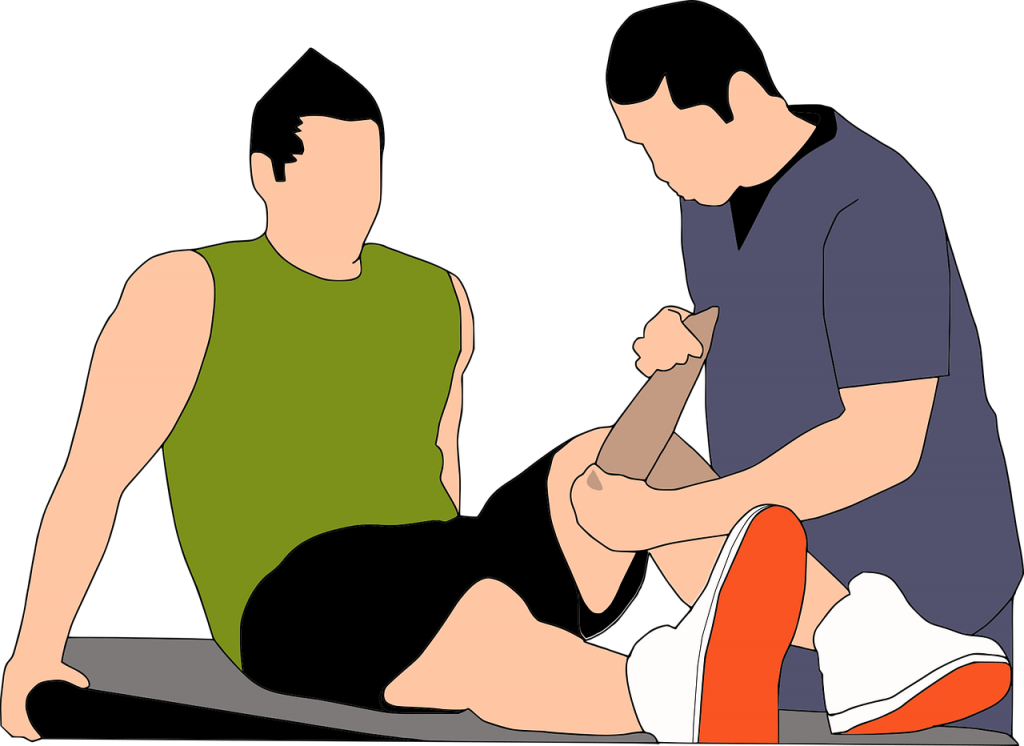Are you considering a career of an occupational therapist?
If so, in this article you will find useful information about the responsibilities, training, qualifications, skills, hours, and other aspects of the job.
Occupational therapists help patients who cannot perform their everyday activities on their own.
These may be injured, disabled, or ill people.
With the treatment provided by the occupational therapist, patients can develop the skills necessary to improve their everyday activities and employment.
Article Table of Contents
What Does an Occupational Therapist Do
Occupational therapists work with various people to help them perform everyday activities without being restrained by the injuries, disabilities, or illnesses.
They may work in various environments since they deal with many types of clients.
Occupational therapists can be employed in hospitals, schools, nursing homes, or have private practices.
Depending on their place of employment, the schedule can vary.
It can be a standard 9 to 5 workday or odd hours, it will also determine the days of the week when they will work.
Despite the workplace, occupational therapists need at least a master’s degree and can make from $70,000 to $90,000 per year.

Responsibilities
- Examine and diagnose the physical condition of patients.
- Keep the confidentiality and privacy of the clients.
- Assess the conditions of patients every time they meet with the client.
- Determine the needs of clients for specialized seating, wheelchairs, additional therapy, etc.
- Cooperate with other team members, including doctors, teachers, physical therapists, and social workers.
- Carry out customized evaluations for every client depending on their needs and strengths.
- Initiate an intervention aimed at the improvement of the client’s abilities to achieve the set daily tasks and goals.
- Set up the evaluation of the results to determine if a client’s goals are achieved.
- Introduce the necessary changes to the intervention plans when clients don’t respond to them.
Essential Skills
Communication:
Occupational therapists work with various people including clients and other professionals.
They should be able to listen, confidentially speak, and document.
Interpersonal:
Occupational therapists deal with a wide range of temperaments and backgrounds.
Clients aren’t always in a good mood, and occupational therapists should be able and willing to deal with any kind of them.
Problem-solving:
Occupational therapists should be able to solve the problems of their clients and recognize them within the intervention plans.
How to Become an Occupational Therapist
Occupational therapists should hold a minimum of a master’s degree.
Many of them have a doctorate’s degree, which reflects the advanced knowledge in the field.
Additionally to the degrees, occupational therapists need a license issued by the National Board for Certification in Occupational Therapy.
Training and Qualifications
Occupational therapists, generally, start with obtaining a bachelor’s degree in occupational therapy.
However, you can qualify with a degree in another area such as special education, biology, or liberal arts, etc.
Although, having a background in physiology and psychology is more essential for the career.
The next step to entering the field is earning a master’s degree in occupational therapy.
Obtaining it may take up to three years.
Some educational facilities offer their students the option of a dual degree.
In this case, they can earn both bachelor’s and master’s degrees at the same time.
The master’s degree requires at least 24 weeks of fieldwork when students can complete clinical work supervised by a licensed occupational therapist.
For the doctorate’s degree, 24 more weeks are required.
Upon obtaining their degrees, aspiring occupational therapists should take the Occupational Therapists, Registered (OTR) examination held by the NBCOT.
They also provide additional certifications for those who wish to become certified in their area of specialization, e.g., mental health or pediatrics.
Experience
Occupational therapists can’t start off in the field without any experience.
Before obtaining a license, one needs a minimum of 24 hours of clinical experience.
To stay competitive in the field, occupational therapists try to gain more experience for the resume.
Even though occupational therapists can’t work without a license, you can gain experience by working in another field.
You can become an advocate for disability awareness, work in camps for the disabled people, volunteer for various programs such as Special Olympics.
Working Hours
Occupational therapists may work in a variety of settings, so their work hours will vary accordingly.
Occupational therapists employed at schools should work within school hours, while those in nursing homes will work in shifts.
Therapists with a private practice generally set their own schedule, and employees of a private clinic usually work a 9 to 5 day.
You may also be required to work on weekends if you work at a nursing home with senior citizens.
With a good salary that they receive, occupational therapists can choose to work part-time or on an “as needed” basis.
Basically, depending on the workplace and when they would like to work, therapists can choose their own working hours.
Career Outlook
According to the Bureau of Labor Statistics, the employment rate of occupational therapists is projected to increase by 27% through 2024.
The high demand for occupational therapists is determined by the need to treat people with autism, loss of movement, or Alzheimer’s.
With the aging population, the need for occupational therapists will grow so that they can develop plans to help the elderly cope with their everyday activities.
The advancement in the career of an occupational therapist depends on personal areas of interest.
Some therapists concentrate on a specific area and get board certification.
Others advance to supervisory positions in hospitals or nursing homes.
Some can choose to pursue a doctorate’s degree.
Based on the workplace, therapists can earn higher wages in supervisory positions.
Generally, therapists employed in nursing homes or hospitals have higher wages than those employed in schools.
Conclusion
The career in occupational therapy can be extremely fulfilling.
These professionals make a positive impact on the daily life of other people.
They can earn good money and can choose from various work settings and schedules.
Those who can communicate effectively, work in a team, and solve problems will find the career as an occupational therapist highly rewarding.
